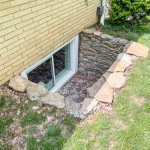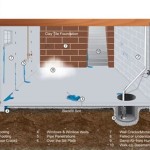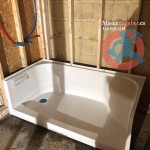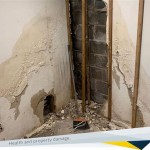Basement Flooded Hot Water Heater: Essential Aspects
A basement flooded with hot water can be a severe issue, potentially causing significant damage to your home and belongings. It's crucial to understand the causes, consequences, and appropriate response to such an event.
Causes of Basement Flooding from Hot Water Heater
Several factors can contribute to a flooded basement due to a hot water heater:
- Leaking Tank: Corrosion or deterioration of the hot water heater tank can cause leaks, releasing water into the basement.
- Faulty Pressure Relief Valve: A malfunctioning pressure relief valve may fail to release excess pressure, causing the tank to rupture and flood.
- Damaged Water Lines: Pipes connected to the hot water heater may develop cracks or leaks, leading to water accumulation in the basement.
- Flooding from Other Sources: In some cases, flooding in the basement may not originate from the hot water heater but from other sources, such as heavy rainfall or sewer backups.
Consequences of Basement Flooding
A flooded basement from a hot water heater can have various adverse effects:
- Structural Damage: Water can weaken building materials, causing damage to walls, floors, and ceilings.
- Electrical Hazards: Contact between water and electrical systems poses a risk of electrocution or short circuits.
- Mold and Mildew: Damp conditions promote the growth of mold and mildew, affecting indoor air quality and causing health issues.
- Property Damage: Belongings stored in the basement can be damaged or destroyed by water and moisture.
Steps to Take in Case of Basement Flooding
If you encounter a basement flooded with hot water, it's essential to take swift and appropriate action:
- Turn Off Electricity: Immediately switch off the main electrical breaker to prevent electrocution hazards.
- Call a Plumber: Contact a licensed plumber to locate the source of the leak and repair or replace the hot water heater.
- Pump Out Water: Use a submersible pump to remove standing water from the basement. Ensure to wear protective gear, such as gloves and boots.
- Dry Out the Basement: Open windows and doors for ventilation. Use fans and dehumidifiers to accelerate the drying process.
- Clean Up and Disinfect: Remove damaged items and clean surfaces thoroughly with a disinfectant solution to prevent mold growth.
Prevention Tips
To minimize the risk of basement flooding from a hot water heater, consider these preventive measures:
- Regular Maintenance: Schedule annual professional maintenance checks for your hot water heater to identify and address potential problems early on.
- Tank Inspection: Periodically inspect the hot water heater tank for signs of corrosion or damage.
- Pressure Relief Valve Testing: Test the pressure relief valve annually to ensure its proper functioning.
- Proper Insulation: Insulating hot water pipes in the basement can prevent condensation and reduce the likelihood of leaks.
Conclusion
A basement flooded with hot water can be a serious issue with potential consequences for your home and belongings. By understanding the causes, consequences, and appropriate response steps, you can mitigate the damage and maintain a safe and healthy living environment.
Remember, regular maintenance and preventive measures can significantly reduce the risk of such incidents. In the event of a flooded basement, do not hesitate to seek professional assistance promptly to ensure proper repairs and minimize potential hazards.

Water Heater Flooded Basement What To Do Damage Tips
Water Heater Flooding 101

Basement Waterproofing Fenton Mo Flooded Flooding Hot Water Heater

How To Tackle Water Heater Flooding Extraction Experts

Be Careful With Your Furnace Post Basement Flooding Automatic Air Corporation

Prevent A Leaking Water Heater Disaster 5 Tips 1 Tom Plumber

Water Heater Basement Flooding Services In Columbus Oh

Basement Waterproofing A Flooded In Williamston Mi Water Damages Appliances

Woods Basement Systems Inc Waterproofing Photo Album Fenton Mo Flooded

Our Solution To Fix Slimy Orange Basement Flooding Ohio Authority







